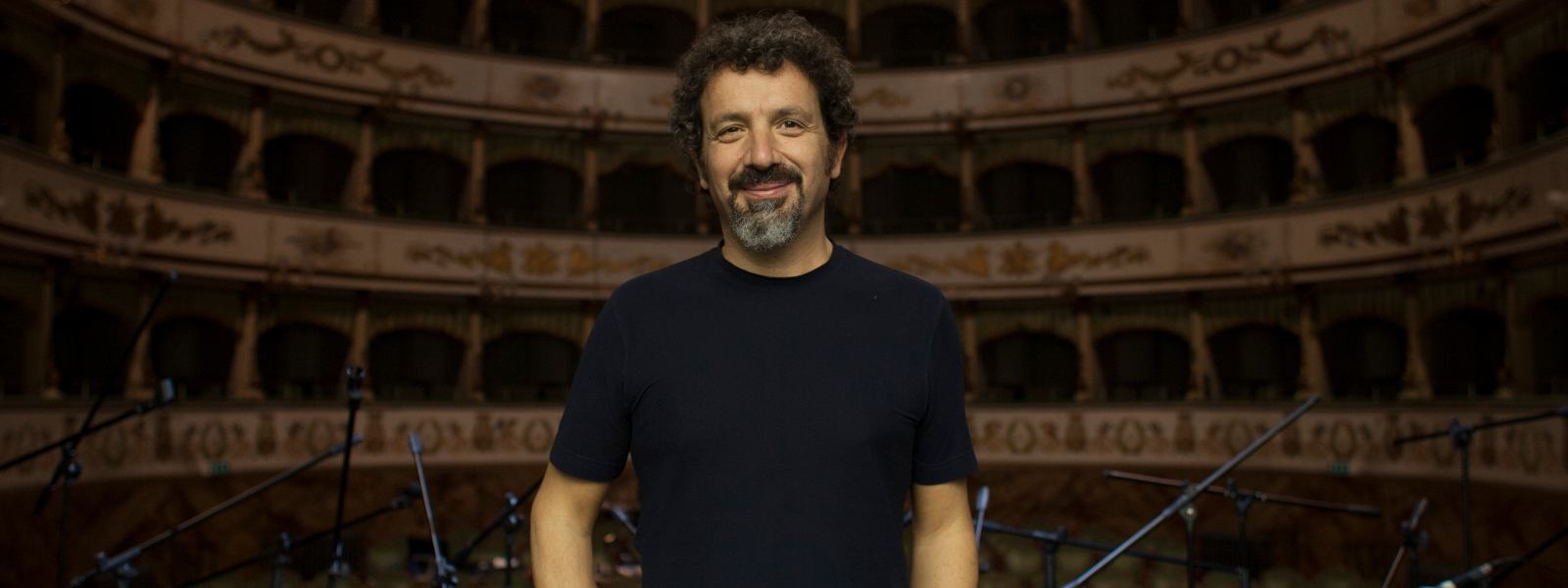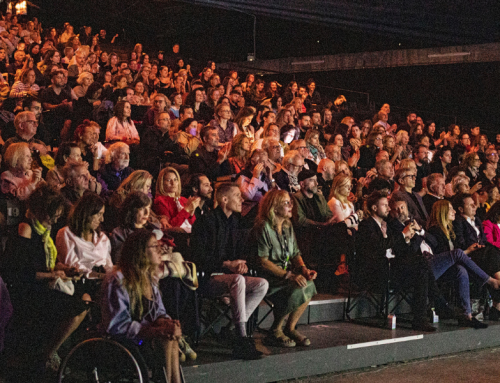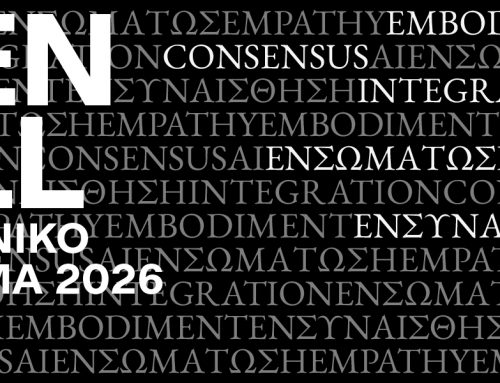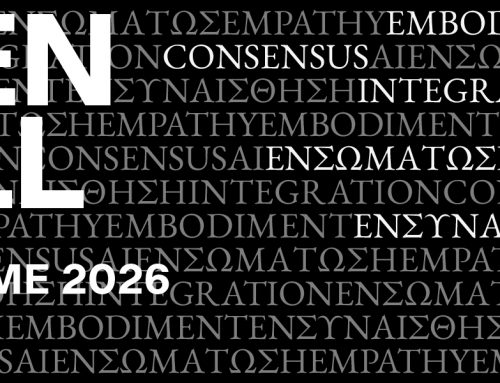The Epidaurus Lyceum – International Summer School of Ancient Drama will take place in Epidaurus on 2 – 16 July 2019. This midsummer theatrical experience is aimed at theatre / dance students and young performing artists from around the world. This year’s teaching staff, as in previous years, will consist of internationally acclaimed artists. One of them is the popular Italian stage and opera director Andrea De Rosa, who will teach the workshop The Messenger: From ancient drama to contemporary theatre. Andrea De Rosa shares with us his thoughts on his work, his involvement with ancient drama and his expectations from the 2019 edition of Epidaurus Lyceum.
How did you get involved with theatre?
I studied philosophy in Naples and just after graduation I began working as assistant to director in theatre and cinema. In a certain way, I was attracted to the possibility of investigating on the stage and on the set the same big questions I was also researching in philosophy. First of all: who am I? I always think those questions while working, trying to understand something more about my life.
How would you describe your directing style? What are your influences?
I think that theatre can involve other disciplines, like music, cinema, photography, performance, etc. and I always try to open up the work on stage to these disciplines. So I could say that the biggest influences in my theatre work doesn’t come from theatre itself but from other disciplines.
You have directed many ancient Greek plays and performances connected to ancient myths throughout your career. What do you think ancient Greek drama has to offer to contemporary audiences and artists?
I think that the ancient Greek plays are close to the origin of things. It’s like standing at the edge of a black hole, trying to look at the middle of it. Nothing comes out of it but if you stay there long enough and look intensely and patiently, sooner or later you’ll discover something in that black light. It’s a strong point of view because, exactly like in the “event horizon”, time and space doesn’t exist anymore and, while you were looking at Oedipus or Phaedra or Antigone, you realize that you’re looking insight yourself.
Modern Greece and Italy share strong connections with the ancient Greek and Roman civilizations. How has theatre, a living form of art which played an integral role in both ancient cultures been reinvented through other forms of art (i.e. painting in Renaissance, opera) all the way to the present?
Theatre remained alive over the millennia because it has the special quality to absorb from other arts, technologies and disciplines and to work out them again. I think that the new millennium will be very prolific for us but only if we’ll have the ability to look forward and strongly outside the stage’s walls.
What are your educational and artistic expectations from your participation in this year’s Epidaurus Lyceum?
I believe that theatre has to be nourished by encounters with other people. The Epidaurus Lyceum could provide the opportunity to meet young artists, new energy, different points of view.
A few words about Andrea De Rosa
Andrea De Rosa began his career as a director after graduating with a degree in philosophy, combining his interest in theatre and opera with productions that were warmly received by audiences and critical alike.
After his debut with Mozart’s Idomeneo, he has directed numerous operas, twentieth-century operas (Britten, Maderna, Schoenberg, Hindemith, Azio Corghi), nineteenth-century melodramas (Verdi and Donizetti) and early twentieth-century with Puccini and Granados.
His productions have been presented in major theatrical venues such as the Opera of Rome, Teatro del Maggio Fiorentino, the Teatro Regio of Turin, La Fenice of Venice, the Theatre San Carlo of Naples, Teatro Real of Madrid, the Mariinsky of St. Petersburg, the Municipal of Sao Paolo, the Sao Carlos of Lisbon, the Royal Opera of Copenhagen, the Pentecost Festival of Salzburg, collaborating with the major conductors including Riccardo Muti, Valery Gergiev, Myung Wung Chung.
He has also staged productions such as: The Trojan Women and The Bacchae by Euripides, Electra by Hugo von Hofmannsthal, Maria Stuart by Friederich Schiller, Molly Sweeney by Brian Friel, The Tempest and Macbethby Shakespeare, Manfred by Byron (with music by Schumann directed by Gianandrea Noseda), Fedra di Seneca. Furthermore, he also carries out a different kind of work more focused on theatrical/philosophical research: Encomio by Elena by Gorgia by Lentini, Tutto ciò che è grande è nella Tempesta (on Martin Heidegger), Symposium by Plato, and the more recent Autobiografia erotica by Domenico Starnone and Julius Caesar by Shakespeare. From 2008 to 2011 he was director of Teatro Stabile di Napoli.
Thanks to his fruitful artistic encounter with conductor Valery Gergiev, in recent years he has often worked at the Mariinsky Theatre in St. Petersburg where, meeting great success, first with his Venetian production of Simon Boccanegra and then with Falstaff which opened the Festival of White Nights, he returned a few months later for the direction of Lucia di Lammermoor.
Workshop description
The Messenger: From ancient drama to contemporary theatre
Participants of this workshop will explore the role of the messenger starting from the analysis of this character, who in ancient tragedy almost always appears nameless, but whose role is however decisive for the unfolding of the story. Often undervalued, interpreted as a simple “narrative function”, he is instead a very important character that we find in all theatrical literature, up to nowadays. Who is he? What does he feel? What weight should he bear? What is his relationship with the “message” he must deliver? What relationship is established between him and the one who receives the message? Is he really a “neutral” medium or is his emotional involvement decisive? How has this character evolved in theatre over the centuries?
Participants will work on various texts, starting from the ancient Greek tragedy to today, also exploring the comic aspect of this role.
Andrea De Rosa’s participation at this year’s Epidaurus Lyceum is supported by the Instituto Italiano di Cultura in Athens and the Italian Ministry of Culture.
For information and applications (final deadline: 30 April 2019), please visit: https://aefestival.gr/epidaurus-lyceum/?lang=en









